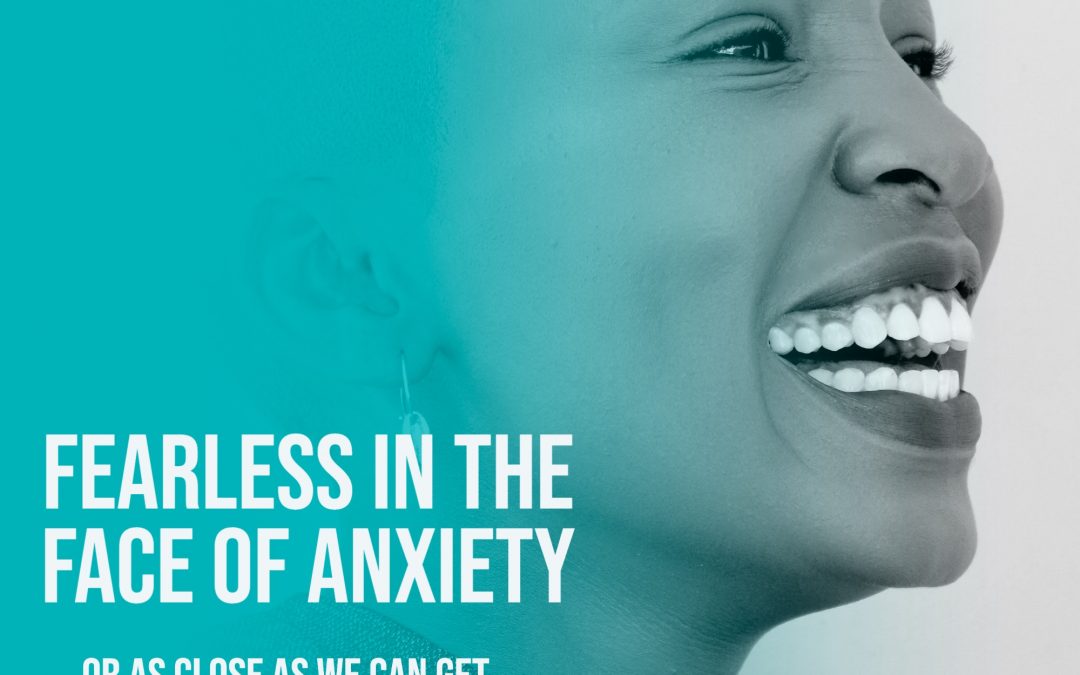According to the National Alliance on Mental Illness, approximately 19% of adults in the United States have been diagnosed with an anxiety disorder. I am included in that nineteen percent. Anxiety is not new to me. I have been learning to cope with anxiety since I was fifteen years old and as a result, I’ve become quite familiar with how it manifests. My anxiety, predictably, intensifies when I am feeling stressed or having self-doubt which then leads to overthinking and questioning my abilities to make decisions. Additionally, I tend to worry that others are judging me and finding me “unworthy”.
My anxiety was at an all time high when I started my second graduate program. “Could I afford it?” “Would I still be able to work full-time?” “What if this isn’t the right career path for me?” “What if I fail all my classes?” These thoughts were constantly racing through my mind and bombarding me with fear. Thankfully, I was able to recognize that this was the voice of my anxiety and over the last year, I have utilized three coping skills that have helped me get into a relationship with my anxiety.
1. Self-Care Isn’t Laziness:
Let me say that again, “Self-care isn’t laziness”. This was a hard realization to come to. Each time I chose to go out with friends or watch my favorite television show, I felt as though I wasn’t working hard enough. I was so worried about failing that I believed my every free moment was meant for studying. Of course, that was unsustainable so I had to teach myself that self-care is actually needed in order to succeed. I began prioritizing self-care by planning it out by scheduling times every day to do at least one thing that brought me joy and relaxation; some of my self-care has included: watching television, scrolling through Tik-Tok, reading a book that had NOTHING to do with school, and spending time with people I enjoy. Doing this made life more balanced, my focus increased, and I was less irritable. Engaging in self-care reminded me that my life didn’t have to revolve around school.
2. Intentional breathing:
Taking moments to slow down and just breathe was incredibly important for clearing my anxious mind. During the worst moments of my anxiety, I began to coach myself to calm down, by clearing my mind and taking at least four, or more, intentional deep breaths. I found that taking those deep breaths helped me bring my heartrate back to normal and made it easier for me to think. Before taking the deep controlled breaths my mind would spiral with catastrophizing thoughts, such as “you will fail” “my classmates are smarter and harder working than me” “just give up”. After taking the controlled breaths my body would relax enough to contradict those voices. Instead, I would tell myself “keep trying” “no one is judging you” “everyone here is new to this and learning”. These thoughts were more productive, cleared my anxiety, and allowed to keep going.
3. Asking for help does not equate to failure:
I often struggled alone when I didn’t understand an assignment or agonized over my grammar in an essay. I was afraid that my colleagues would see through my façade if I asked for help and they would realize I wasn’t worthy of being in the program. I had to change my mindset when it came to asking for help because if I didn’t I would have burnt out from the stress and exhaustion my anxiety was creating. Once I allowed myself to be vulnerable, and faced the fear of failure school became less stressful and more enjoyable. Asking questions in class generated stimulating discussions with my classmates and teachers. I realized that my worst fear wasn’t based in reality but something that my anxiety conjured to protect me from the scary things of the world. Surprisingly, the more I asked for help, the more confident I grew.
I am happy to report I will be graduating in January feeling secure and confident. If you are struggling with stress and anxiety in school to engage in your self-care and breathe. Remember grades do not define who we are.

